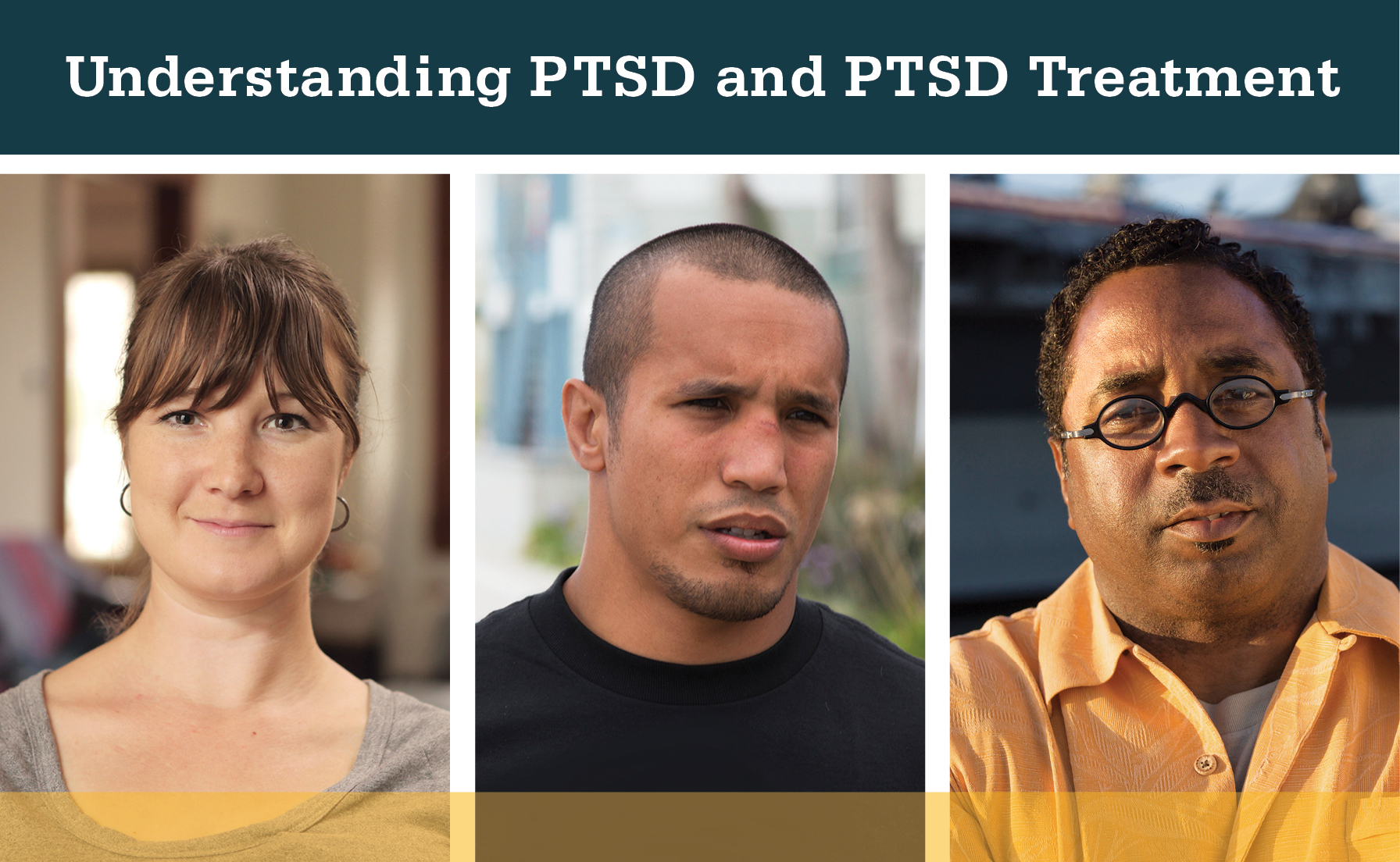Dogs and PTSD
Dogs and PTSD
Available en Español
You may find a dog can lift your mood and be a good companion. There is not enough research to know if dogs help treat PTSD and symptoms. Learn about service dogs and emotional support dogs and the study VA is doing to learn more about dogs and PTSD.
Reading time: minutes
Owning a dog can lift your mood or help you feel less stressed. Dogs can help people feel better by providing companionship. All dog owners, including those who have posttraumatic stress disorder (PTSD) can experience these benefits.
Currently, there is not enough research to know if dogs help treat PTSD and its symptoms. Evidence-based therapies and medications for PTSD are supported by clinical research. We encourage you to learn more about these treatments because it is difficult to draw strong conclusions from the few studies on dogs and PTSD that have been done.
What Are the Emotional Benefits of Having a Dog?
Dogs can make great pets. Having a dog as a pet can benefit anyone who likes dogs, including people with PTSD. For example, dogs:
- Help bring out feelings of love.
- Are good companions.
- Take orders well when trained. This can be very comfortable for a Service member or Veteran who was used to giving orders in the military.
- Are fun and can help reduce stress.
- Are a good reason to get out of the house, spend time outdoors, and meet new people.
Recovering from PTSD
Recovering from PTSD is a process. Evidence-based treatments for PTSD help people do things they have been avoiding because of their PTSD, such as standing close to a stranger or going into a building without scanning it for danger first. Evidence-based treatments can also help people feel better. Dogs can help you deal with some parts of living with PTSD, but they are not a substitute for effective PTSD treatment.
Although people with PTSD who have a service dog for a physical disability or emotional support dog may feel comforted by the animal, there is some chance they may continue to believe that they cannot do certain things on their own. For example, if the dog keeps strangers from coming too close, the owner will not have a chance to learn that they can handle this situation without the dog. Becoming dependent on a dog can get in the way of the recovery process for PTSD. Based on what we know from research, evidence-based treatment provides the best chance of recovery from PTSD.
In This Article
Service Dogs and Emotional Support Dogs
Service dogs
A service dog is a dog trained to do specific tasks for a person that the person cannot do because of a disability. Service dogs can pick things up, guide a person with vision problems, or help someone who falls or loses balance easily. For example, a service dog can help a blind person walk down the street or get dangerous things out of the way when someone is having a seizure.
Protecting someone, giving emotional support, or being a companion do not qualify a dog to be a service animal. To be a service dog, a dog must go through training. Usually the dog is trained to:
- Do things that are different from natural dog behavior
- Do things that the handler (dog owner) cannot do because of a disability
- Learn to work with the handler in ways that help manage the handler's disability
Because the handler depends on the service dog's help, service dogs are allowed in most public places the handler goes. This is the case even if it is somewhere pet dogs usually cannot go, like restaurants or on airplanes. But there are a few exceptions. For example, service dogs can be asked to leave if they are not behaving well.
Emotional support dogs
An emotional support animal is a pet that helps an owner with a mental health condition. Emotional support dogs help owners feel better by giving friendship and companionship. These dogs are also called comfort dogs or support dogs.
An emotional support dog does not need special training. Generally, a regular pet can be an emotional support dog if a mental health provider writes a letter saying that the owner has a mental health condition or disability and needs the dog's help for emotional support.
In most states, emotional support dogs do not have special permission to go to all public places like service dogs do. But, emotional support dogs are sometimes allowed special consideration. For example, the owner may be able to get permission to have an emotional support pet in a house or apartment that does not normally allow dogs. Or, the owner may be able to get permission to fly on a plane together with the dog.
To get special permissions, the dog owner needs to show a provider's letter to the landlord or airline. Sometimes, the landlord or airline will also want to see information about the provider, such as a copy of their professional license.
What Do I Need to Know about Dogs and PTSD?
Pets, service animals, and emotional support dogs need owners who can provide for them. Dogs require constant attention and care. It is a good idea to discuss getting a dog with your doctor or family before making the decision. If you have PTSD and are worried that it may be hard for you to provide a safe, caring home for a dog, it may be good to wait until after you get treatment for your PTSD and feel better.
You may already have a dog that helps you feel better or do things you would not otherwise do. But learning more about evidence-based PTSD treatments is important. Unlike people who have service dogs because they have permanent disabilities (like blindness or seizure disorders), people with PTSD can get better with treatment.
If you are looking for a service dog or emotional support dog, we recommend you carefully research any organizations you contact. You should only get a dog if you are confident it is well trained. The organization should be able to answer any questions you have.
VA and Service Dogs
VA has started a research study to see if having a service dog or emotional support dog helps people with PTSD do more activities and have a better quality of life. The study is expected to take several years to complete. The National Center for PTSD is not involved in this study, but we will provide results when they become available.
VA does not provide service dogs for physical or mental health conditions, including PTSD. VA does provide veterinary care for service dogs that are deemed medically necessary for the rehabilitation or restorative care plan of Veterans with permanent physical impairments. If research supports the use of service dogs for PTSD, VA will provide veterinary care for such dogs. Read more information on VA and service dogs.
You May Also Be Interested In


























